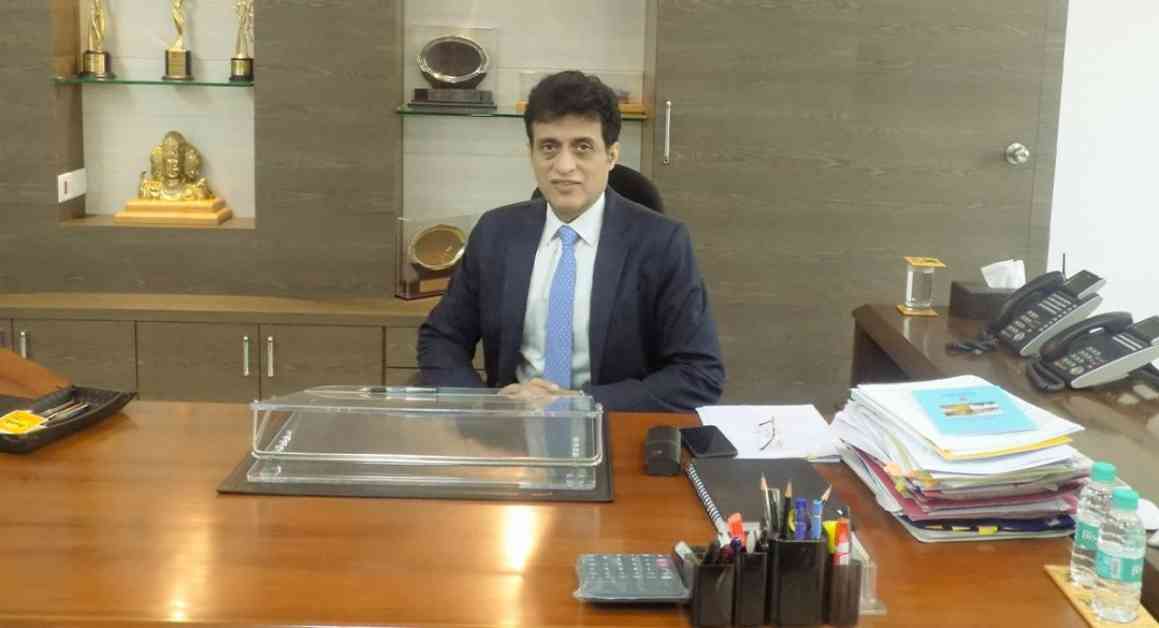In a surprising turn of events, the Maharashtra government has appointed IAS officer Sanjay Sethi as the new chairman of the Maharashtra State Road Transport Corporation (MSRTC), breaking away from the tradition of selecting a public representative for the role. This decision has stirred up concerns regarding conflicts of interest and the lack of public oversight.
Sanjay Sethi, a high-ranking officer holding the position of Transport Secretary, was officially appointed to lead the MSRTC according to a gazette notification issued by the government. This move marks a significant departure from the customary practice of appointing the transport minister or elected officials to this key position. The previous chairman, Bharat Gogawale, a member of the Shiv Sena faction led by Deputy Chief Minister Eknath Shinde, stepped down from his role after being absorbed into the state government.
The unconventional appointment of Sethi has raised questions about potential conflicts of interest, given that he already serves as an ex-officio member of the MSRTC in his capacity as transport secretary. A former official from the transport department, speaking anonymously, criticized the decision, highlighting the ethical concerns surrounding such a move. He emphasized the importance of maintaining transparency and avoiding situations where proposals and approvals are intertwined. Furthermore, the absence of public representation on the MSRTC board due to Sethi’s appointment has also been a point of contention.
Despite the controversy surrounding the appointment, the Maharashtra government defended its decision by emphasizing the urgent need for strong leadership within the MSRTC. Transport Minister Pratap Sarnaik, a member of the Shiv Sena party, had reportedly urged Chief Minister Devendra Fadnavis to expedite the appointment of a new chairman to address the pressing issues facing the corporation.
Maharashtra Government Transfers Seven IAS Officers
In a separate administrative move, the Maharashtra government recently undertook the transfer of seven IAS officers across various departments. Dhiraj Kumar, a senior IAS officer, was reassigned as the Secretary in the Medical Education department, signaling a strategic shift in bureaucratic responsibilities within the state. Krishnakant Kanwariya assumed the role of Additional District Collector in the Shahada division of Nandurbar district, while Shaila A was appointed as Secretary in the Finance department.
The reshuffling of bureaucratic positions also saw key appointments in critical sectors, such as education, agriculture, and finance. Ruchesh Jayvanshi’s appointment as Secretary in the Minority Development Department highlights the government’s commitment to addressing diverse community needs. Sachinchandra Pratap’s new role as the Education Commissioner in Pune signifies a focused effort to enhance educational policies and initiatives in the region.
Ravindra Binavade’s designation as Inspector General of Stamp Duty underscores the importance of monitoring revenue generation through stamp duty collections. This responsibility plays a vital role in sustaining the state’s financial resources. Additionally, the appointments of Suraj Mandhre and Pradeep P as Commissioners in the Agriculture and Fisheries Departments reflect the government’s dedication to supporting rural economies and livelihoods in Maharashtra.
Prashant Narnavre’s new role as Secretary in the General Administration Department, coupled with his appointment as Special Investigation Officer, showcases the government’s commitment to ensuring accountability and oversight in administrative functions. Ranjit Singh Deol’s appointment as Principal Secretary of the School Education and Sports Department underscores the significance of shaping education and sports policies for the state’s development.
Furthermore, Ashok Karanjkar’s appointment as the Managing Director of the Maharashtra State Finance Corporation highlights the government’s efforts to provide financial support to small and medium-sized enterprises in the region. These strategic bureaucratic changes aim to streamline operations and enhance governance across various sectors in Maharashtra.
Overall, the recent appointments and transfers within the Maharashtra government reflect a concerted effort to strengthen administrative capacities, address key sectoral challenges, and promote inclusive development across the state. The diverse array of roles and responsibilities assigned to IAS officers underscores the government’s commitment to effective governance and service delivery to its citizens.




















